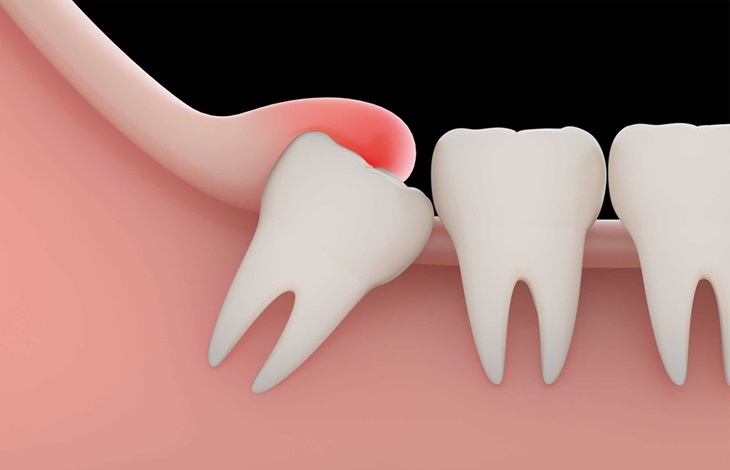From Incisors to Wisdom Teeth: Understanding the Names and Functions of Every Tooth
Teeth are the unsung heroes of the human body. They have an impressive strength that, in fact, outshines all other anatomical structures. While we all appreciate a dazzling smile that lights up a face and heavily rely on these sturdy companions for nourishment and speech daily, it’s surprising how little the average person knows about their structure.
Knowing and understanding the names and functions of our teeth is quite important. Firstly, recognising which tooth might be causing discomfort can be an immense help when contacting a dentist in Maroubra to schedule a timely consultation. Furthermore, grasping the long-term impact of neglecting dental issues can spark motivation to take charge of oral hygiene and prevent conditions such as diabetes, heart disease, and certain types of cancer, which are closely linked to poor oral health.
The Marvellous Multitasking of Our Teeth
Our teeth are true multitaskers. Their primary role is processing food, as they diligently break down our meals into manageable morsels, setting the stage for efficient digestion. But that’s not all – teeth are also essential for speech. Regardless of the language we speak, our teeth help shape the sounds that form our words. Without them, producing clear speech would be a difficult task, making communication a real challenge.
The Four Categories of Teeth
In early childhood, our dental journey begins with 20 “starter” teeth, poised to make their debut through the gums at various stages of development. These temporary tenants, fondly known as baby teeth, eventually give way to a set of 32 permanent teeth. Our adult teeth fall into four distinct categories, each with its unique role:
- Incisors (8): Our frontline cutters
- Canines (4): Our pointed specialists
- Premolars (8): Our grinding assistants
- Molars (12): Our chewing champions (including two wisdom teeth on each side)
It’s worth noting that some people have to bid farewell to their wisdom teeth through extraction by a dentist in Maroubra, but we’ll talk about this later.
Incisors: The Frontline Force
The incisors are our eight frontmost teeth, sporting flat edges and a slimmer profile compared to their dental neighbours. In the human lifecycle, these are the first baby teeth to make an appearance, typically peeking through at 6-8 months old. They’re also among the first to fall out when it’s time for permanent teeth to take centre stage.
When we “sink our teeth” into something, the incisors do the heavy work. These teeth excel at tearing and cutting food while also supporting our lips and helping our tongues form certain sounds.
Canines: The Sharp Tacticians
Next in line are the canines, the sharpest tools in our dental shed. These pointed specialists are experts at tearing through tough food. Their name stems from their resemblance to dogs’ teeth, although human canines are considerably less pronounced.
Interestingly, canine teeth play a crucial role in the facial structure. Without them, our bite can go askew. Furthermore, canines provide vital support for the rest of the mouth and assist in jaw alignment. However, they’re often the first to show signs of wear and tear, which underscores the importance of diligent dental care.
Premolars: The Versatile Intermediaries
The average person boasts eight premolars – four up top and four below – nestled next to the canines. These teeth feature flat surfaces with ridges and are often called bicuspids by dental professionals. They’re larger than incisors and canines but not quite as wide as molars. Premolars step in to replace baby molars, usually making their debut around age 10. They’re the jack of all trades in the mouth, helping to mash and tear food while assisting molars in the pre-digestive chewing process. As transitional teeth, they partly assume the roles of both canines and molars while also helping maintain facial height.
Molars and Wisdom Teeth: The Grinding Powerhouses
Molars are the heavyweights of the dental world – the largest and toughest teeth in the mouth. We have twelve in total: eight main molars and four wisdom teeth. The main eight arrive in two waves – typically around age 6 and then again at 12. The final four – the wisdom teeth – make their grand entrance last, usually between ages 17 and 25.
However, sometimes, there’s not enough room in the mouth for all wisdom teeth, which often leads to impaction. When wisdom teeth can’t surface properly and cause pain, an extraction might be necessary to prevent damage to the neighbouring teeth and reduce the risk of infections.
Molars are the true champions of oral digestion, boasting unmatched strength for thoroughly grinding food before swallowing. After that initial bite, molars do the lion’s share of the work, with our tongues pushing food to the back of the mouth for thorough mashing. The better we chew, the easier our digestive system can process food. However, this constant food contact makes molars the most cavity-prone of all our teeth.
When to Seek Expertise from a Dentist in Maroubra
Our teeth are essential for proper functioning, so it is crucial to seek appropriate dental care when something feels wrong or painful. Moreover, neglected oral health issues can sometimes be linked to broader health concerns. That’s why regular check-ups with a dentist in Maroubra are so vital. To schedule an appointment, call our Maroubra Dental Clinic at 02 9344 8822 to ensure your teeth are all intact and keep your smile healthy and bright.
Read Also:
Understanding the Ideal Age for Dental Braces
4 Reasons to Look After Your Teeth
